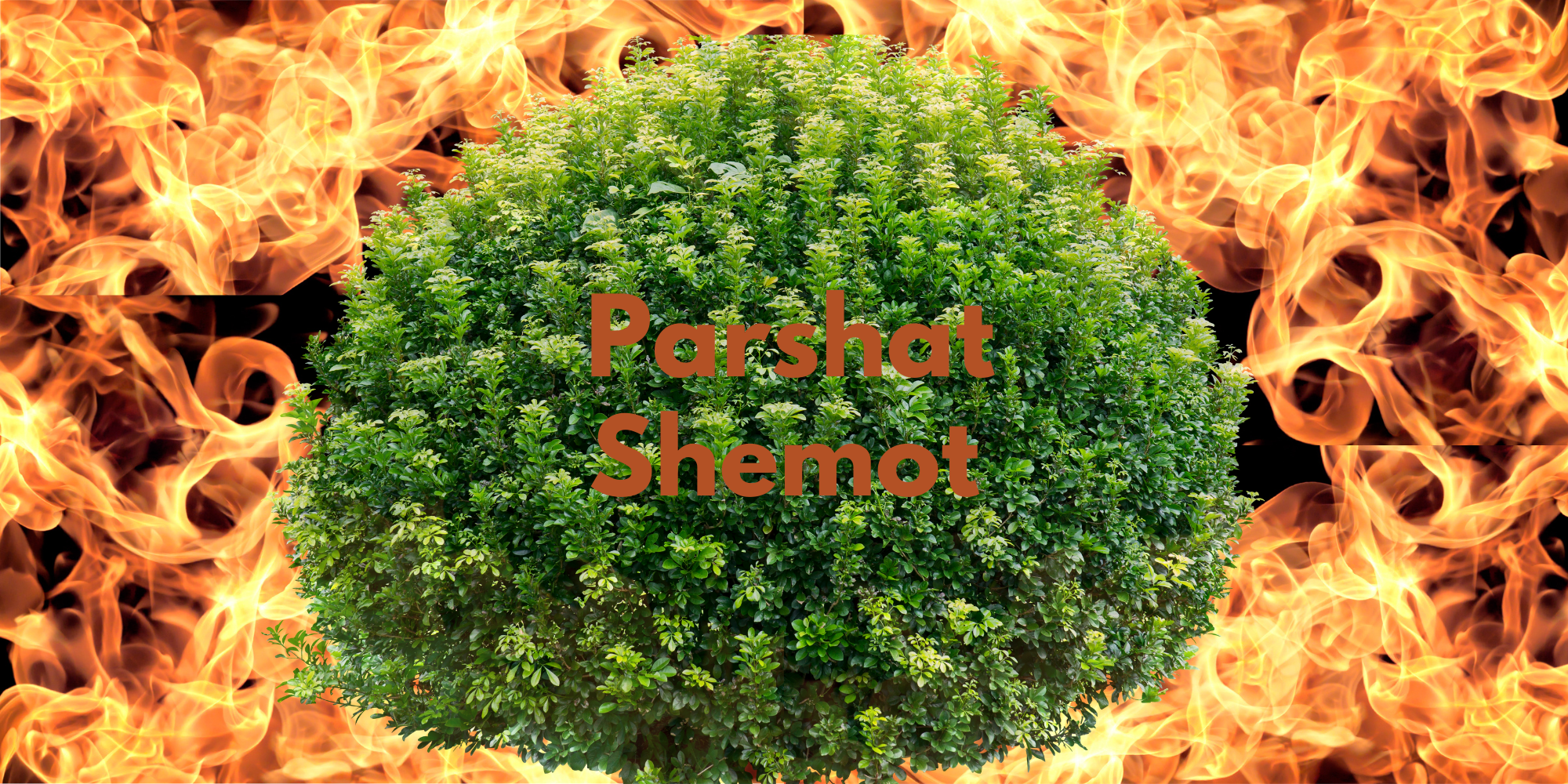“Moses was pasturing the flocks of Jethro, his father in law, the chief of Midian, and he led the flocks after the free pastureland, and he came to the mountain of God, to Horeb. An angel of God appeared to him in a flame of fire from within the thorn bush, and behold, the thorn bush was burning with fire, but the thorn bush was not being consumed. So Moses said, “Let me turn now and see this great spectacle why does the thorn bush not burn up?” (Exodus 3:1-3).
Thus, one of the best-known images in the Torah is presented: a bush that burns but is not consumed. Only when Moses took the time to investigate this unusual phenomenon did God speak to him. Although it was certainly an unusual sight to see, how many people would just walk by and not take the time to see what was happening. In other words, God sends us signs all the time yet the question is whether we realize and understand what the unfolding circumstances our lives trying to teach us.
Where as in this instance God appears in a fire that is not consumed, another verse describes God in very different terms: “For God, your God is a consuming fire…” (Exodus 4:24). Thus, we see that there are two different types of fires when relating to God. Inasmuch as a human being is created in the image of God and there is a mitzvah in the Torah to emulate God, it follows that we also manifest these two types of fire.
The human being is a composite of body and soul and each can manifest, depending on the circumstance, both types of fires. When a a person allows their bodily desires and passions to rule over them there is a very good chance they and others around them will be consumed in the very fire they are projecting. The more we feed our physical passions the more addictive and routine they become until we lose controlling them altogether and they control us. Yet, when properly channeled and controlled our bodily needs, desires and passions can be harnessed and expressed in positive ways and in many cases in holiness and purity. When this occurs, we can compare it to a fire that burns but does not consume.
On a soul level these two levels of fire also exist. When any spiritual passion becomes obsessive or extreme it too can manifest as an all-consuming fire. Extreme asceticism can destroy the body and put unnecessary stress on a person’s emotional balance. Extreme personality characteristics and opinions can destroy relationships and opportunities and in the end thwart one’s plans and deeper purpose in life. Many common expressions express the emotional experience of an all-consuming fire: “I really got burned,” “I am burnt out,” “My mind is toast.” Other expressions without the word fire express the same results of burn out: “This is just too much,” I can’t handle this,” “I am freaking out” “I’m out of here.”
In the positive sense the soul is compared to fire that ever seeks to flame upward towards its Divine source. In Hebrew the word for flame is shalhevet, whose numerical value equals 737. The following words which teach us to love God is included in the daily recitation of the Shema and has the same numerical value: “with all your heart and with all your soul, and with all your means” (Exodus 6:5). This teaches us that true love of God should be experienced and expressed as a burning passion, an all-encompassing illuminated state of consciousness inspiring us to reach ever upward, like a dancing flame.
Aaron, the High Priest, was commanded to light the menorah in the Tabernacle. Regarding this commandment, Rashi comments that he should kindle the lights “until the flame rises up on its own [power],” ad hashelhevet olah me’aleha (Numbers 8:2). The simple meaning of this phrase is that Aaron is obligated to not only light the lights, but to make sure they will stay lit on their own. Spiritually this means that a superficial love of God based purely on a sense of obligation or duty will not be enough to keep one’s light lit, so to speak. Rather, one’s love of God must be carefully cultivated in a manner that assures it will be an intimate and passionate love that will stay lit through all the ups and downs of life. This can only occur through a fiery, deeply felt, and fervent love of God. In fact, the word in Hebrew for “holy” is kadosh, whose letters can be interpreted to mean yikod aish – “ignited fire.” Holiness when experienced in a healthy spiritual manner is a fire that burns and is not consumed.
When God appeared to Moses at the burning bush there was more to the bush burning than not being consumed as a way to simply draw Moses’ attention. God was about to put on Moses’ shoulder the tremendous responsibility of bringing Israel out of Egypt and to lead them to the Holy Land. Positions of leadership are fraught with challenges and obstacles and leaders are ripe for burnout. God was assuring Moses that if he would take upon himself the mantle of leadership his fire would burn and not be consumed.







